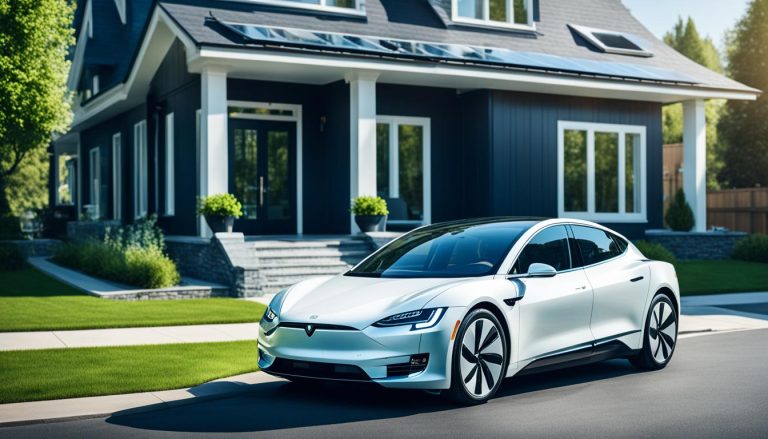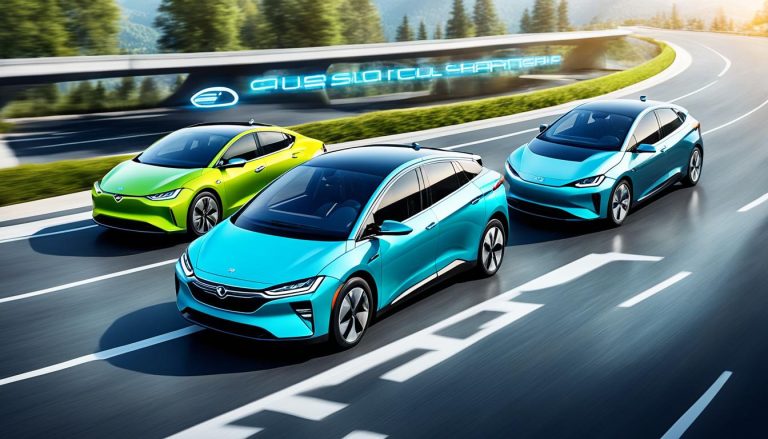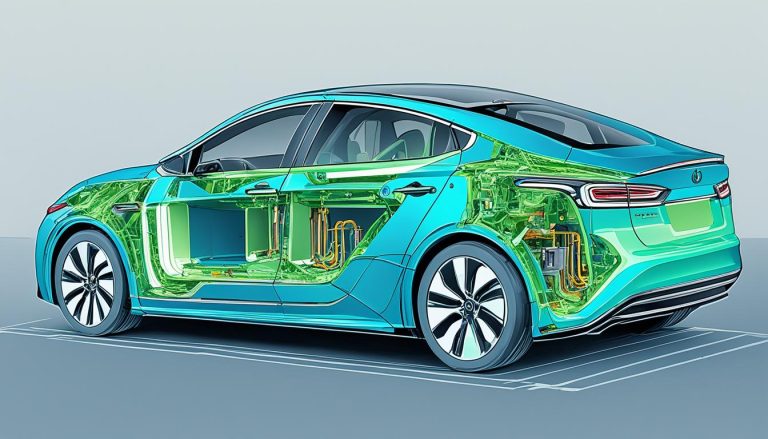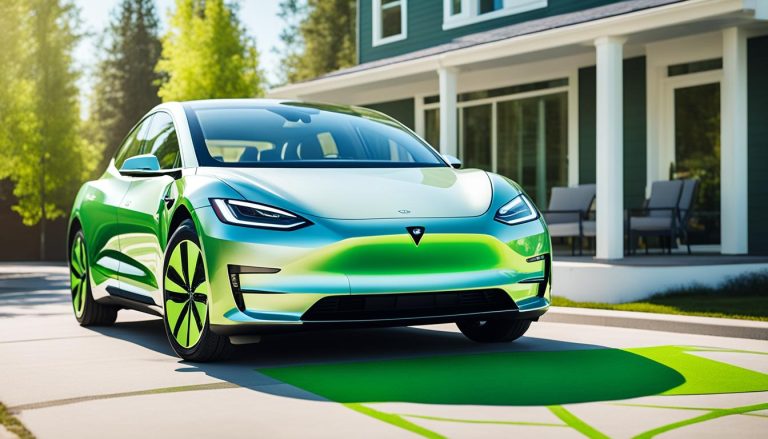What Are Hybrid Electric Vehicles
Welcome to the world of hybrid electric vehicles (HEVs). In today’s era of eco-friendly innovation, HEVs have emerged as a game-changer in the automotive industry. These vehicles combine the power of traditional internal combustion engines with electric motors, resulting in increased efficiency and reduced emissions.
HEVs are designed to optimize fuel economy by utilizing both gasoline and electric power sources. They employ advanced technologies to seamlessly switch between the two systems, depending on driving conditions and power demands.
By harnessing the potential of electric power, hybrid electric vehicles reduce fuel consumption and lessen their carbon footprint. This makes them an ideal choice for environmentally conscious individuals who want to contribute to a sustainable future while enjoying the benefits of personal transportation.
As concerns about climate change and air pollution continue to grow, HEVs are becoming increasingly popular among consumers. Their impressive fuel efficiency and lower emissions not only contribute to a cleaner environment but also translate into cost savings on fuel expenses.
In the upcoming sections, we will explore the mechanics behind hybrid electric vehicles and delve into their numerous benefits.
How Do Hybrid Electric Vehicles Work?
Now that we have a basic understanding of hybrid electric vehicles, let’s explore how they work.
A hybrid electric vehicle combines the use of an internal combustion engine and an electric motor to power the vehicle. The internal combustion engine is responsible for converting fuel, usually gasoline, into mechanical energy. On the other hand, the electric motor is powered by a rechargeable battery pack. Together, these two systems work in harmony to achieve optimal performance and efficiency.
The internal combustion engine in a hybrid electric vehicle is similar to that in a traditional gasoline-powered car. It uses the combustion of fuel to generate power, which is then transmitted to the wheels through a transmission system. However, in a hybrid electric vehicle, the engine is smaller and more efficient, as it does not solely rely on fossil fuels to power the vehicle.
The electric motor in a hybrid electric vehicle is powered by a high-voltage battery pack. This battery pack can be charged through regenerative braking, where the motor acts as a generator and converts the vehicle’s kinetic energy into electrical energy to recharge the battery. The electric motor can also be charged by plugging the vehicle into an external power source.
One of the key features of hybrid electric vehicles is their ability to switch between the internal combustion engine and the electric motor, or operate both simultaneously, depending on the driving conditions and power requirements. This intelligent management of power sources allows hybrid electric vehicles to maximize efficiency and reduce emissions.
The transition between the engine and the motor is seamlessly controlled by a powertrain control module, which continuously monitors driving conditions, battery charge level, and the driver’s inputs. This control module ensures that the hybrid electric vehicle always operates in the most efficient mode, whether it’s using the engine, motor, or a combination of both.
By utilizing the strengths of both the internal combustion engine and the electric motor, hybrid electric vehicles achieve improved fuel efficiency, reduced emissions, and superior performance compared to conventional gasoline-powered vehicles. They offer a greener and more sustainable transportation option without compromising on power and range.
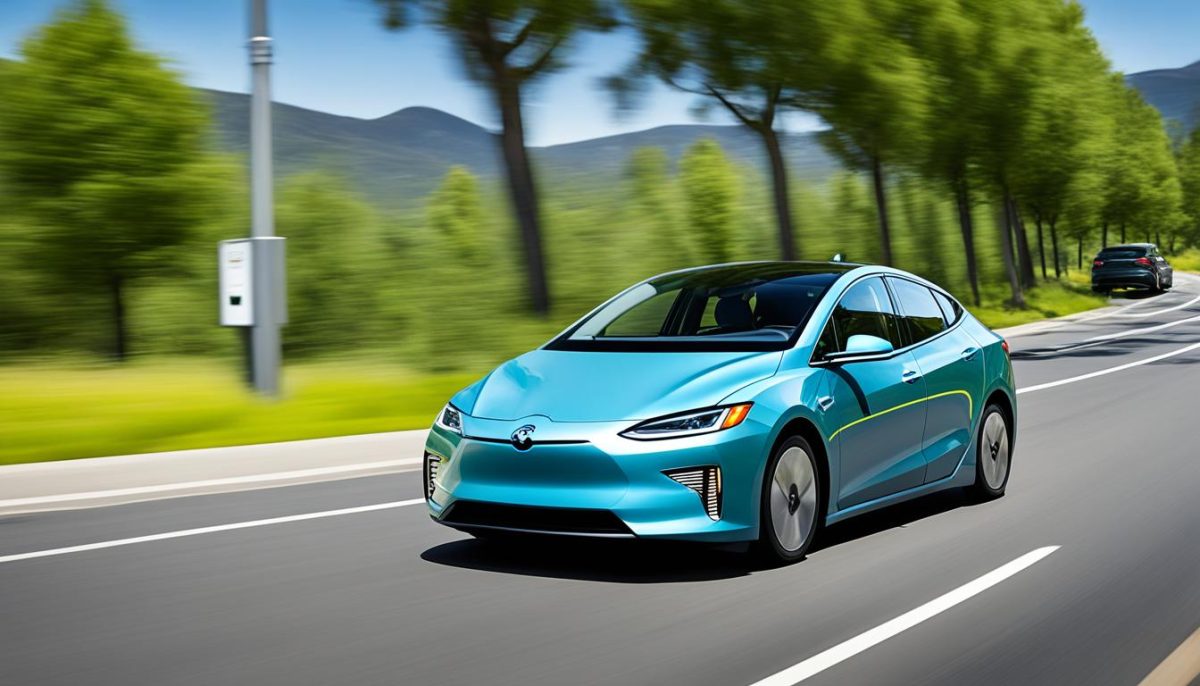
| Advantages of Hybrid Electric Vehicles |
|---|
| 1. Improved fuel efficiency |
| 2. Reduced emissions |
| 3. Regenerative braking |
| 4. Silent electric mode |
| 5. Seamless power transition |
| 6. Reduced dependence on fossil fuels |
| 7. Potential cost savings |
| 8. Available incentives and tax credits |
Benefits of Hybrid Electric Vehicles
Hybrid Electric Vehicles (HEVs) offer a wide range of benefits that make them a compelling choice for environmentally conscious individuals and those looking to save on fuel costs. One of the key advantages of HEVs is their reduced emissions, contributing to cleaner air and a healthier planet. By combining an internal combustion engine with an electric motor, hybrid electric vehicles are able to significantly lower their carbon footprint, benefitting both the environment and future generations.
In addition to their environmental advantages, hybrid electric vehicles also offer improved fuel efficiency. With their innovative technology, HEVs can achieve better mileage compared to traditional gasoline-powered vehicles. By utilizing regenerative braking and smoothly switching between the engine and electric motor, hybrid electric vehicles optimize fuel consumption and minimize waste.
Another important benefit of hybrid electric vehicles is the potential for cost savings. While the initial purchase price of an HEV may be higher than that of a conventional vehicle, the long-term savings on fuel expenses can offset this difference. Additionally, many governments and organizations provide incentives, such as tax credits or rebates, that further reduce the cost of owning an HEV. These financial advantages, combined with the reduced fuel consumption, make hybrid electric vehicles an attractive option for budget-conscious individuals.
Looking ahead, the long-term sustainability of hybrid electric vehicles is a significant advantage. As the world moves towards a more sustainable future, these vehicles play a crucial role in reducing greenhouse gas emissions and dependence on fossil fuels. Moreover, with ongoing advancements in battery technology and infrastructure, the popularity of hybrid electric vehicles is expected to grow rapidly, fostering a cleaner and greener transportation system for generations to come.




